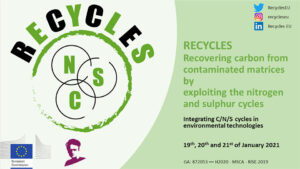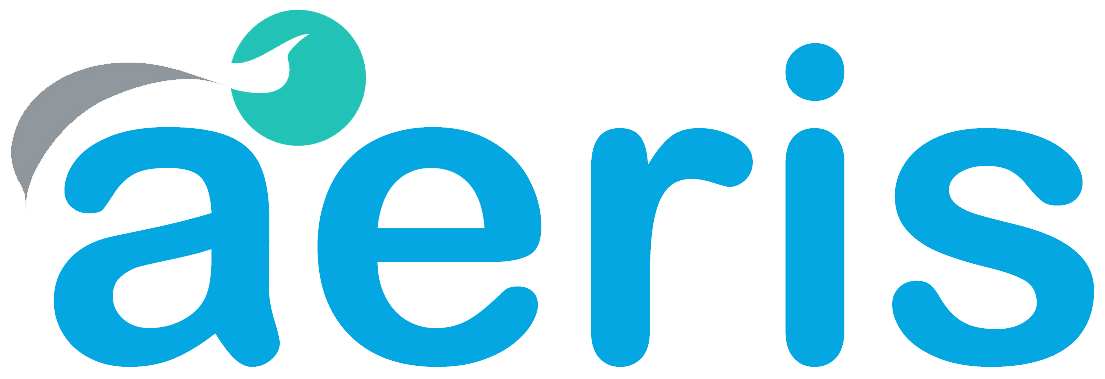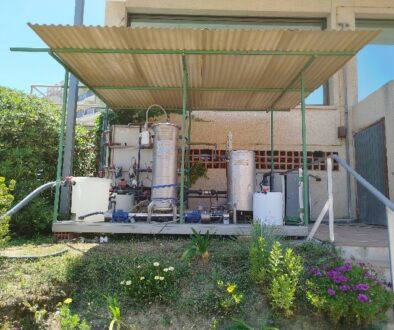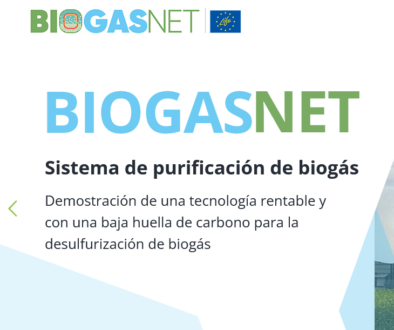RECYCLES, a European project to improve the viability of residual treatment plants

AERIS participates in the European project RECYCLES, which will work to improve the technical, economic, and environmental viability of residual treatment plants by exploiting and integrating the carbon, nitrogen, and sulfur cycles. The objective is to promote innovation in biotechnological and solutions to improve the treatment of solid, liquid and gaseous wastes and the recovery of valuable resources, in order to combine these innovative biological processes and thus reduce the energy requirements of treatment plants.
RECYCLES “Recovering carbon from contaminated matrices by exploiting the nitrogen and sulphur cycles” is a interdisciplinary and intersectoral project financed by 1.2M€ by the European Commission within the framework of the HORIZON 2020 actions (MSCA-RISE-2019 – Research and Innovation Staff Exchange) which is approached from the circular economy point of view, with the principal objective of exploring the possible synergy between the carbon, nitrogen and sulfur cycles in bioreactors to design innovative and optimal integrated residual water and biogas treatment systems that also reduce the cost and the production of valuable products.
The principal hypothesis of the RECYCLES project is that by directing the carbon present in residues towards biogas production instead of classical aerobic oxidation process, together with the development of innovative biotechnologies and treatment systems that integrate the carbon, nitrogen, and sulfur cycles. It is possible to increase the technical, economic, and environmental feasibility of waste treatment facilities, in addition to favoring resource recovery. To verify this hypothesis and address the overall objective of the project, the research will focus on the development of biotechnologies and innovative solutions that allow a better integration of matter transfer process and biodegradation rates to overcome temporal and spatial variability in bioreactors applied to treatment of liquid and gaseous effluents. The research also aims to evaluate potential combinations of unitary biological processes such as partial nitrification, autotrophic denitrification, or enzymatic valorization of CO2 to enlarge the range of applicability of biological processes and reduce the energy requirements of waste treatment facilities, always considering resource recovery.
The RECYCLES project is coordinated by the Autonomous University of Barcelona and the consortium includes the following universities and international companies: Università degli Studi di Firenze, Università di Pisa and Italprogetti Spa from Italy, AERIS Tecnologies Ambientals from Spain, Prince of Songkla University from Thailand, Pontificia Universidad Católica de Valparaíso from Chile, and University of Manitoba from Canada. The consortium will join forces and their extensive experience in the fields of biological residual water and gas treatment processes and resource recovery to meet the objectives of the RECYCLES project and thus improve the sustainability of waste management.





